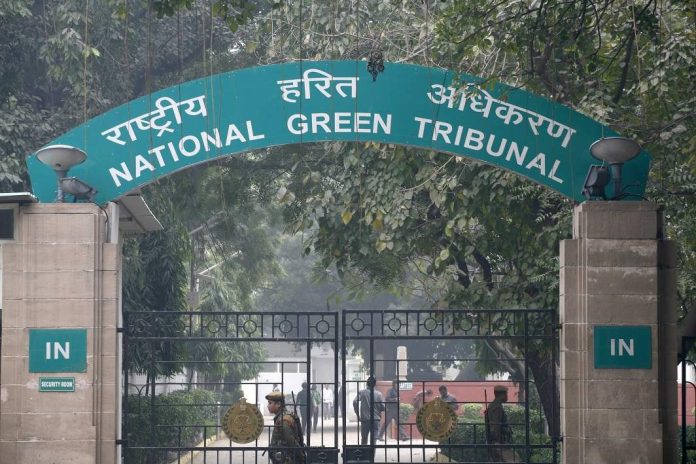The National Green Tribunal, while observing that since no visible improvement in the air quality has been witnessed, directed the respondents to take stringent measures so that the air quality index in Delhi and NCR improves.
The Principal Bench of Chairperson Justice Prakash Shrivastva, Justice Sudhir Agarwal and Dr. A. Senthil Vel heard a Suo Motu application considering newspaper reports depicting serious air pollution in Delhi.
The Tribunal by order dated 20.10.2023 had impleaded the respondents and had called for the action taken report for measures undertaken to control air pollution from different sources in Delhi in accordance with Graded Response Action Plan (GRAP) to maintain Air Quality Index (AQI) in acceptable range to safeguard public health in view of winter season ahead.
The action taken report has been filed at the instance of the Commission for Air Quality Management in NCR and Adjoining Areas (CAQM). The report contains the details of different stages of GRAP as last revised in October 2023 and it is stated that month of October 2023 saw “very poor” average air quality (AQI more than 300) mainly towards end of the month in the wake of highly unfavourable, meteorological and climatic conditions and that GRAP -II were invoked proactively on 21.10.2023.
The report on behalf of the Central Pollution Control Board (CPCB) mentions about the various heads under which steps are to be taken to comprehensively manage the ambient air quality in Delhi – NCR which include air quality response system for Delhi – NCR, close monitoring and ground level implementation, measures to control industrial pollution, measures to control pollution from DG sets, measures for control of stubble burning, measures for control of dust emissions from C&D sites and roads, AQI and public awareness and media outreach. In respect of the technical interventions, the report reads as under:
“2.7. Technical Interventions a) Research projects are being carried out by CPCB in collaboration with premier institutions like IIT, NEERI, etc which provide scientific inputs for taking focused action towards improvement in air quality of Delhi NCR. Trials of various new technologies for air pollution control have been carried out such as WAYU air purification units developed by NEERI for pollution abatement at traffic junctions. Pariyantra bus roof top filtration system for PM reduction in ambient environment developed by MRIIRS. Faridabad. negative ion generator for PM reduction in ambient environment developed by Science & Technology Park. Pune. dust suppressant for construction sites and road dust control developed by EPRI, Pune. Out of these, results of dust suppressant were found encouraging and accordingly Advisory have been issued for use of dust suppressant by road owning and construction agencies.
b) A pilot Smog tower has been commissioned at Anand Vihar. ISBT and its performance is being evaluated by IIT Bombay.”
Though, the above technical interventions suggest ways to regulate and control pollution but no particulars have been disclosed as to how to what extent they have been made applicable and what is the end result , the Bench said.
Action taken report on behalf of Govt. of NCT of Delhi has been filed which refers to the source of pollution identified in a study conducted by the Department of Environment, Govt. of Delhi through IIT Kanpur as under:
“a. Vehicular pollution.
b. Dust from road and construction and demolition activities.
c. Open burning of dry leaves/emissions.
e. Burning of crop residue.”
The report mentions the steps which have been taken to control the pollution.
Hence, the NGT opined that the concerned agencies are required to review their strategy and come out with effective solution to ensure that the AQI in Delhi and NCR is maintained within the permissible limits. In this regard during the course of arguments, following suggestions have been made by Counsel for the parties:-
i. Under GRAP, all kinds of Government constructions have been permitted, whereas at the stage of invoking GRAP-IV only the urgent and timebound government construction activities should be allowed and other should be deferred till the air quality improves.
ii. There are lapses on the part of implementing agencies in implementation of GRAP, therefore, effective steps should be taken to ensure its proper and full implementation.
iii. The Ministry of Petroleum should consider imposing ban on supply to petrol and diesel to unregistered and non-compliant vehicles by the petrol pumps.
The NGT directed that let the fresh action taken report be filed by the concerned agencies on or before the next date of hearing while posting the matter on 20.11.2023.


